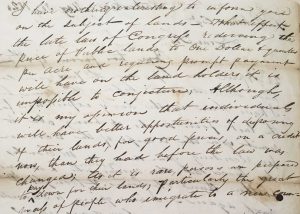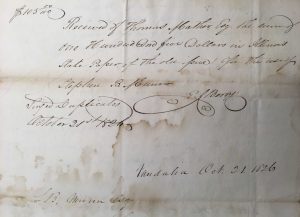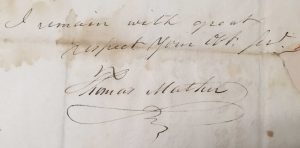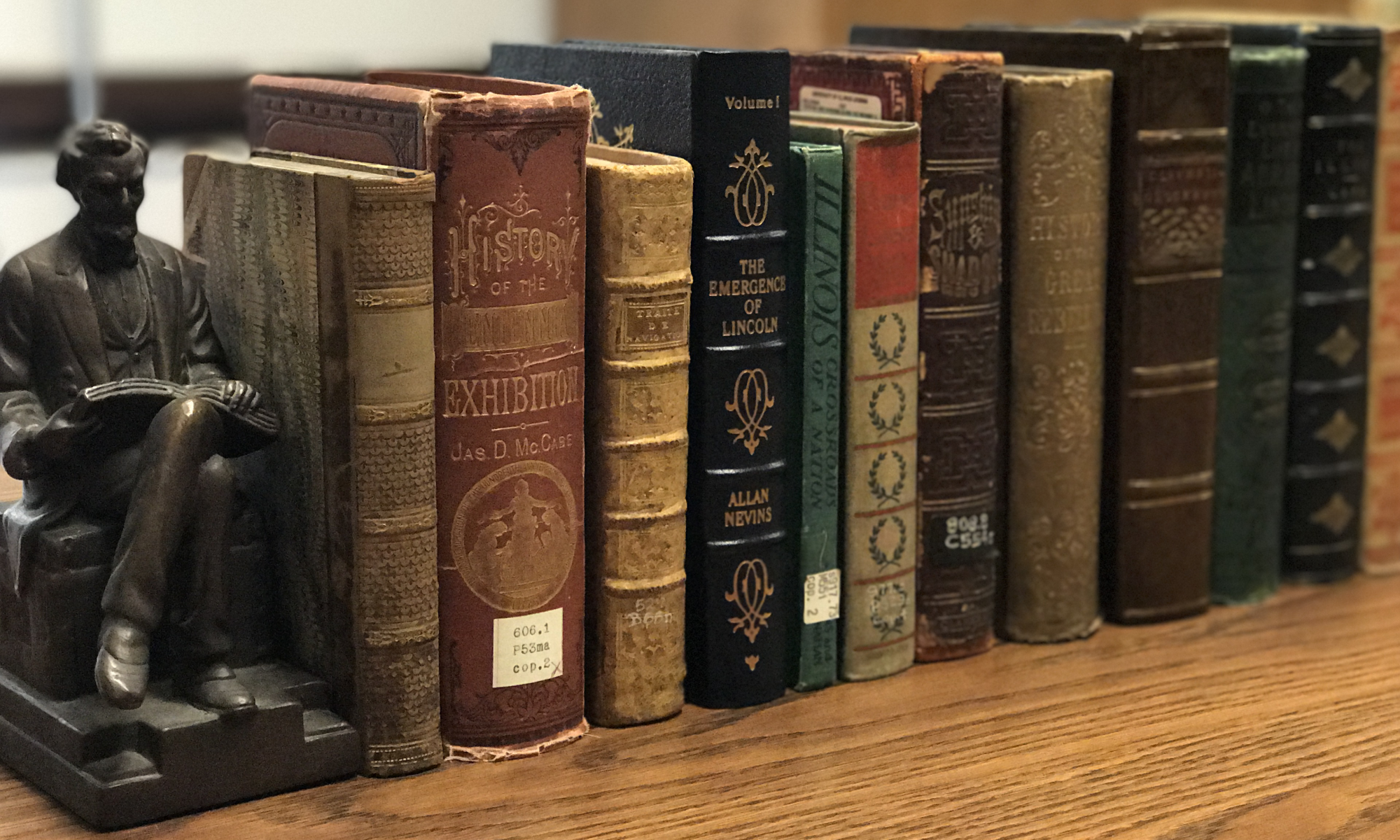Thomas Mather was an early Illinois settler, businessman, and politician who served as a member of both branches of the Illinois legislature. His father, William Mather, fought in the Revolutionary War, and Thomas was also a direct descendant of New England minister Cotton Mather. Thomas Mather was born in Simsbury, Connecticut in 1795. He became a successful merchant in New York City, and in the spring of 1818, Mather migrated to Kaskaskia, Illinois.
As he settled into life in Illinois, Mather quickly become involved in both business and politics. He was elected to the Illinois House of Representatives in 1820 and served four terms, including a term as Speaker of the House from 1824-1826. He also served two terms with the Illinois Senate. As a member of the lower house from 1822-1823, Mather strongly opposed a resolution that would permit slavery in Illinois. Mather was actively engaged in public discussion against the adoption of the resolution. He remained persistent in voicing these views, and when it came time for the voters of Illinois to cast their votes, a margin of 1,800 votes prevented Illinois from becoming a slave state.

Mather was actively involved in both the developing Illinois government and business ventures throughout his life. He also maintained his ties with acquaintances back in New York as he continued to establish himself in Illinois. The Thomas Mather Letters (MS 924) consist of two letters written by Mather to Stephen B. Munn, a merchant in New York. In the first letter, dated 1820, Mather wrote from Kaskaskia discussing final payments for a land purchase there. Kaskaskia had previously served as the first state capital of Illinois since it achieved statehood in 1818 to 1819, and prior to that it had been the capital of the Illinois Territory since 1809. Mather noted a law of Congress that had changed the price of public land, which he felt offered individuals better opportunities to dispose of their lands for good prices. He went on to discuss a business affair, noting that he planned to travel to New York after the winter and that he had a prospect to sell Munn’s goods as they had discussed previously. This letter, written during Mather’s first term with the House of Representatives, shows the relationship between law and land, reveals an intersection between business and politics, and displays Mather’s ongoing business endeavors across states.

A second letter from Mather in 1826 from Vandalia –the state capital of Illinois since 1819 – included a receipt of payment in the sum of $105 for Munn. Mather discussed a lawsuit that Munn had commenced regarding an unpaid debt. Mather wrote, “I hope you will eventually get every cent of the debt, but there is no justice in attempting to make me pay it. If the suit is continued what little I have shall be spent in defending it, but nothing shall prevent me doing everything in my power to enable you to get your money from his who justly owes it to you.” He went on to offer words of concern after hearing that Munn’s son had fallen ill, and Mather wished him well in his recovery.
Both of these letters demonstrate Mather’s dual interests and services with both government and business and offer a unique look at commercial enterprises, land, and taxes in early Illinois. As an early settler, Mather was able to gain a foothold in multiple facets of the growth of Illinois and establish himself as a significant figure.

Mather continued to involve himself in politics and business ventures throughout the rest of his life in Illinois. In 1825, President John Quincy Adams appointed Mather as one of three commissioners tasked to seek out a road that would connect Independence, Missouri to Santa Fe, New Mexico. They were also responsible for surveying this land and negotiating treaties with the Native American tribes along the route. Mather and the other commissioners submitted their report in the fall of 1827, by which point the road was already widely used.
Mather moved to Springfield in 1835 and started a mercantile business called Mather, Lamb & Co. That same year Mather contributed to the establishment of the State Bank of Illinois and was named President. He went on to assist in the development of the Illinois Central Railroad, and he later served on the Board of Trustees of Illinois College at Jacksonville. After retiring from his active pursuit of business endeavors due to poor health, Mather continued to live in Springfield until his death in 1853 on a trip to Philadelphia.
Other Resources
Barrett, Walter. The Old Merchants of New York City. New York: Carleton, 1868.
Hart, Richard E. “Lincoln’s Springfield: Photograph of Historic Mather Residence.” The Abraham Lincoln Association 12, no.2 (2010): 1-3. http://www.abrahamlincolnassociation.org/Newsletters/12-2.pdf
History of the Illinois Central Railroad Company and Representative Employees. Chicago, IL: Railroad Historical Company, 1900.
Palmer, John M. “The Illinois State Capitol Grounds.” Journal of the Illinois State Historical Society (1908-1984) 15 no. 3/4 (1922): 600-03. http://www.jstor.org/stable/40186941
Power, John Carroll. History of the Early Settlers of Sangamon County, Illinois. Springfield, IL: Edwin A. Wilson & Co., 1876.
Spitler, Pete. “Landmark Renovations Progressing.” Herald Tribune, November 5, 2017. http://www.randolphcountyheraldtribune.com/news/20171103/landmark-renovations-progressing
“Thomas Mather.” Historical Encyclopedia of Illinois and History of Champaign County. Chicago, IL: Munsell, 1905. American Biographical Archive. https://wbis.degruyter.com/biographic-document/A293252

Thanks for your comment, Tom! We’re so glad to hear you liked the post.
Wonderful article on Thomas Mather. Our team was involved in saving and renovating the “Landmark” building that Mather and partners build on the riverfront in Chester, IL. Thank you for help bring Thomas to life for us!